Description
The emergence of newer international standards and the focus on STEM education are transforming entire educational sectors. Yet, as schools focus more attention to developing global competencies and 21st century skills in their pedagogy, it has become critical to re-engage educators and school communities with the goals of language education, multilingualism, and multiliteracy while promoting interconnectedness, empathy, and mutual comprehension among our youth. With this in mind, it is important to understand the potential of multilingual education as it can serve our societies’ new expectations, and provide the right tools for success to our younger generations.
The Gift of Languages: Paradigm Shift In U.S. Foreign Language Education explores the many advantages of multilingual education and sets the stage for a new paradigm in our approach to teaching and learning languages. The book touches on the issue of foreign language deficit in the United States and the changes that need to occur in our schools to better serve our children and our linguistic communities. The book also explores the growth of dual-language education in recent years and explores the connection between both multilingual programming and solving the United States’ foreign language problem.
The discussion on language education in the United States has never been neutral; moreover, it has traditionally provided substantive direction and exerted significant authority over educational policy. Yet, this debate needs to move towards viewing multilingual education as an essential approach for our society, and as something that should be prevalent among educational policymakers. The audience for this book includes educators, language teachers, school leaders, school boards, program directors, scholars, and policy makers particularly if they want to join forces in building the future of education and investing in the multilingual capital of our nation.
This book is part of The Bilingual Revolution Series.
We are at a critical point in our nation in which we can continue to hold on to our monolingual past, or embrace a multilingual and more inclusive future. The Gift of Languages helps us prepare and understand the necessary paradigm shift to adopt and implement a multilingual curriculum and mindset in our schools and communities. Co-authored by two pioneers and experienced experts in the bi- and multilingual education space, the book is a must read for educators, policy makers, community leaders, students, and interested parents who want to make meaningful changes now.
The Gift of Languages should awaken all Americans, especially the policy makers, for the need to raise future generations of multilingual citizens to compete and thrive in our global community. One of our founding fathers and presidents, Thomas Jefferson, spoke to and acted upon the need for teaching languages when he founded the University of Virginia; as a nation, we have not lived up to his words and actions. Let us remind ourselves that we started out a linguistically and culturally diverse group of peoples that came together to build a strong nation over the years. Linguistic diversity is the gift that our nation needs to give itself!
“Mastering languages is essential for communicating with and understanding others, respecting each other, and appreciating our heritages and our roots. The Gift of Languages offers an invaluable toolbox for policy makers, educators, families and students who are already working in the field of language and those who hope to create the kind of paradigm shift that the authors advocate. The book provides cogent arguments in favor of expanded language learning at all levels, and especially argues in favor of expanding the breadth and variety of multilingual educational opportunities already spreading in public school systems from Utah to Louisiana to New York and beyond. The authors cite examples of the “Bilingual Revolution” already underway and provide the kinds of arguments and examples that resonate for educators and drive policy towards furthering the way we value language education in the United States. The book is indispensable for anyone interested in the future of foreign language education.”
– Jane F. Ross, Ph.D.
President and Founder, French Heritage Language Program
Over 60% of people on the planet are bilingual or multilingual — which suggests that this is the norm for human beings — and multiple studies demonstrate the cognitive, social, political, and financial benefits of bilingualism. Yet in the United States, we regularly hear news stories about people being shamed, bullied, and sometimes violently harmed for speaking other languages, even when they also speak English. Accessibly written, this book offers detailed arguments for both why and how the nation should embrace and promote linguistic diversity. Options for adults are expertly addressed, yet the authors invest even greater passion and detail in promoting early educational programs in which no child is left monolingual. I can think of no better way to shift our nation’s view of itself from “English Only” to “English Plus” and create a more inclusive society. We need a roadmap, and this book clearly lays out the territory and possible trajectories as it motivates us to make the journey.
– Kimberly J. Potowski, Ph.D.
Professor in the Department of Hispanic and Italian Studies, University of Illinois at Chicago
About the Authors
Fabrice Jaumont is the author of The Bilingual Revolution: The Future of Education is in Two Languages (TBR Books, 2017), which provides inspirational vignettes and practical advice for parents and educators who want to create a dual-language program in their own school. He has also published several books and articles on philanthropy, higher education, heritage languages, cinema, and the arts. Fabrice Jaumont is Education Attaché for the Embassy of France to the United States, a Program Director for FACE Foundation in New York, and the founder of New York in French. He is also a Senior Fellow at Fondation Maison des Sciences de l’Homme in Paris. Fabrice Jaumont holds a Ph.D. in Comparative and International Education from New York University.
For more information, visit the author’s blog: fabricejaumont.net
Kathleen Stein-Smith is the author of The U.S. Foreign Language Deficit: Strategies for Maintaining a Competitive Edge in a Globalized World (Palgrave-MacMillan, 2016), The U.S. Foreign Language Deficit and How It Can Be Effectively Addressed in the Globalized World: A Bibliographic Essay (Edwin Mellen Press, 2013), and The U.S. Foreign Language Deficit and Our Economic and National Security: A Bibliographic Essay on the U.S. Language Paradox. (Edwin Mellen Press, 2013). Kathleen Stein-Smith is Associate University Librarian at Fairleigh Dickinson University, Chair of the American Association of Teachers of French Commission on Advocacy, and member of the American Translators Association Education & Pedagogy Committee. She has taught foreign languages at high school and college level, taught adult learners, delivered TEDx talk on the U.S. foreign language deficit. She holds a Ph.D. in Interdisciplinary Studies from Union Institute & University.
For more information, visit the author’s blog: kathleensteinsmith.wordpress.com

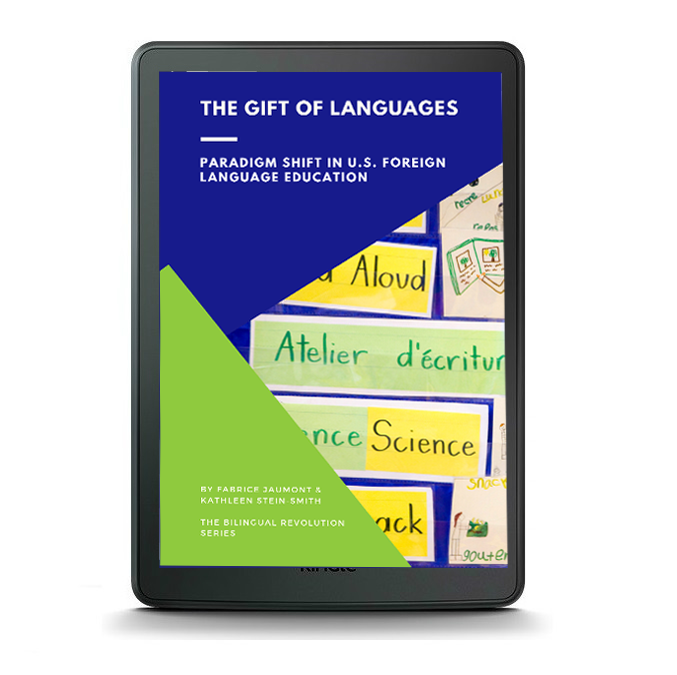
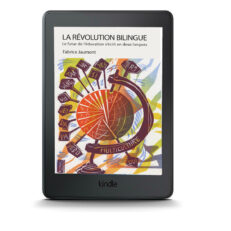

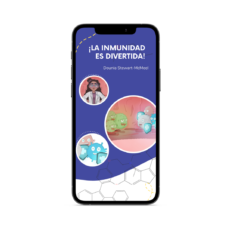
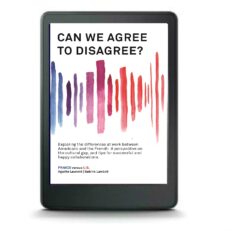
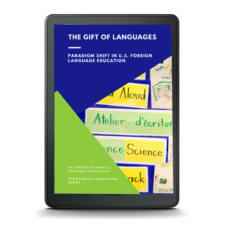
Avis
Il n’y a pas encore d’avis.